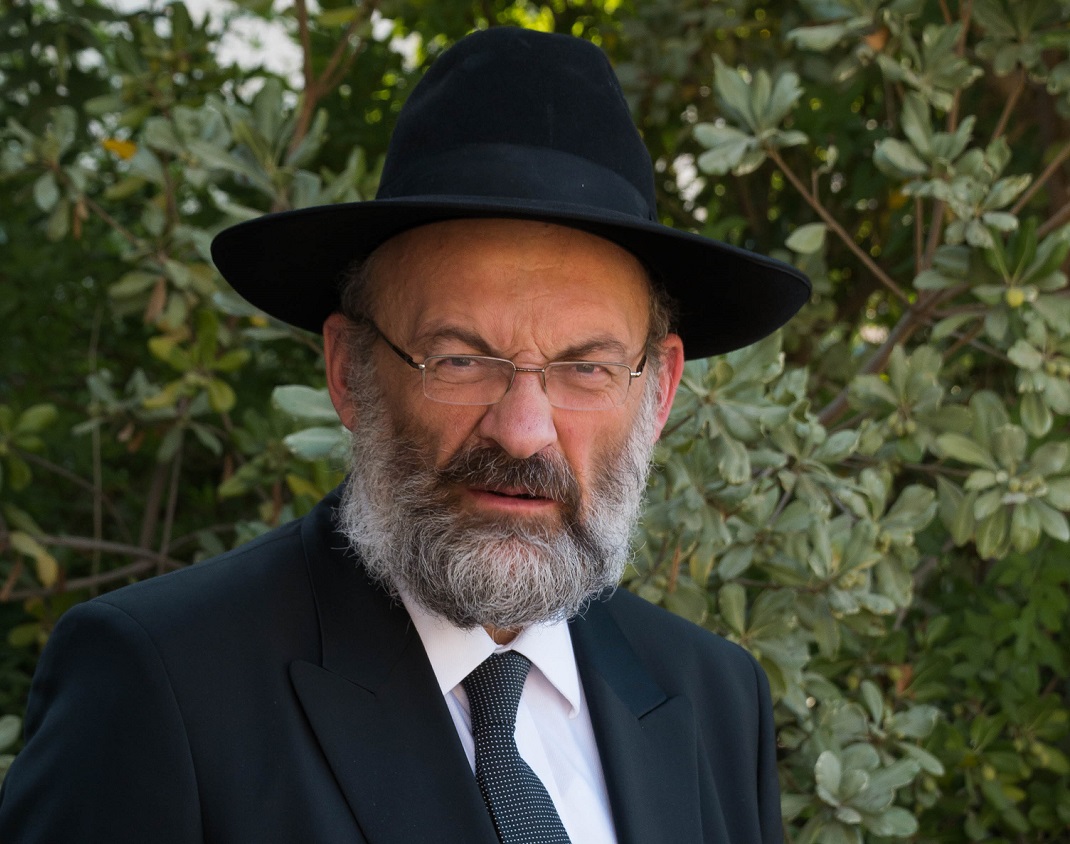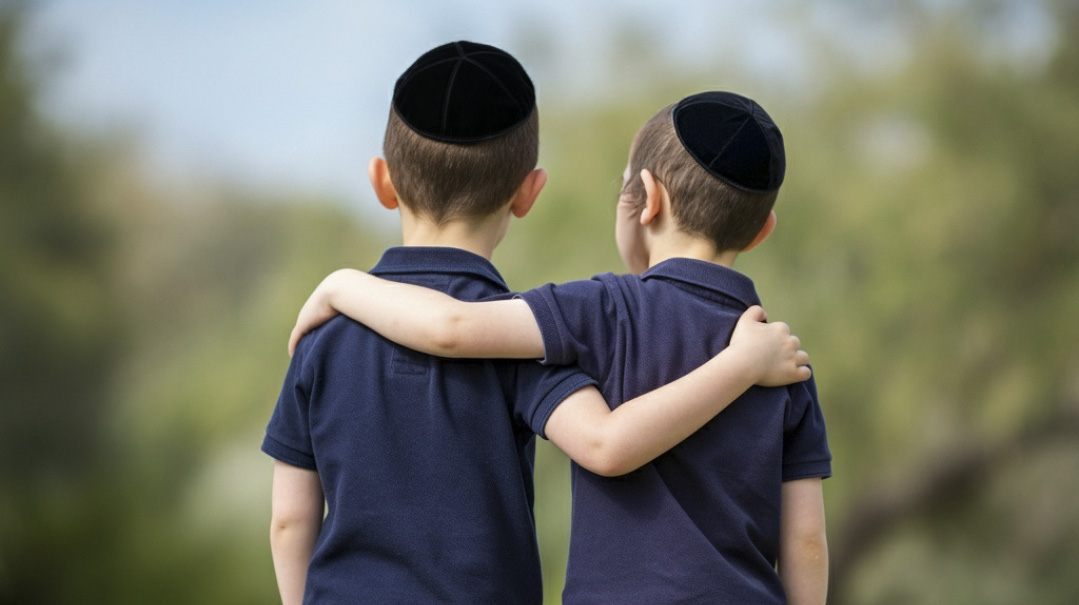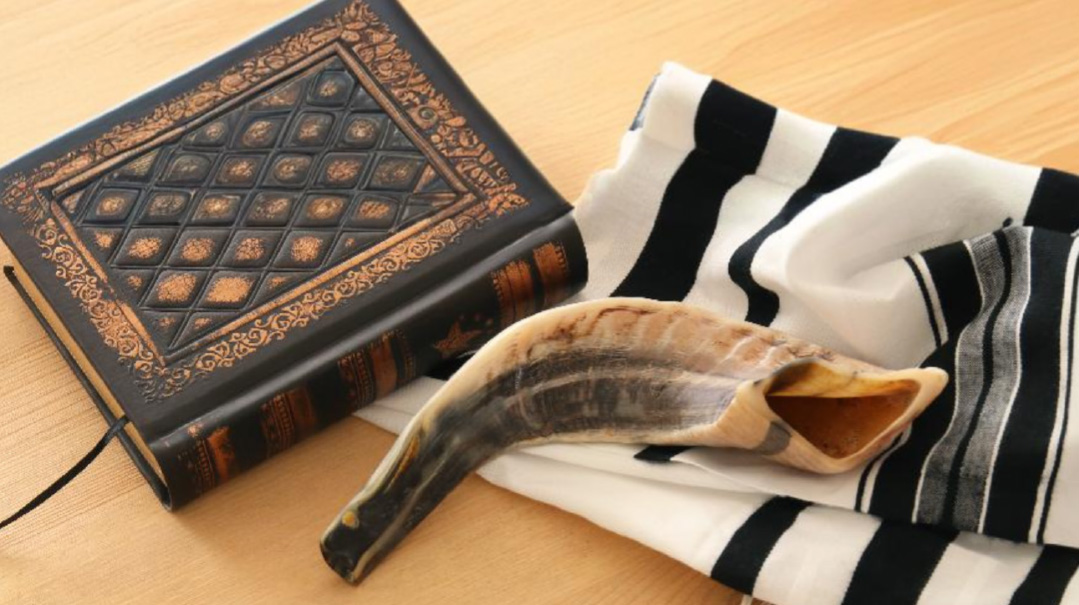Savor the Taste of a Mitzvah

It’s best to start out with one mitzvah that speaks to us
Following the outbreak of COVID-19, Jews around the world witnessed the painful closure of shuls and yeshivos. The community, the center of our religious lives, was suddenly taken from us. Now, as many kehillos return to relatively normal life, the temptation is to thank Hashem that the nightmare is over and try to forget about it. But it would be a grave mistake to simply move on as if nothing happened. We don’t know why Hashem sent us coronavirus, but one thing is certain: Nothing we went through was incidental. Every detail was orchestrated by Hashem to teach us something. There’s a lesson in avodas Hashem we need to learn and take with us forever, even after the suffering has passed.
Whenever life presents challenges to our avodas Hashem, the problem itself reveals the avodah Hashem wants from us. For instance, sometimes an avreich goes through a situation which prevents him from sitting and learning for any significant amount of time. Instead of bemoaning his troubles and giving up on learning till the problem goes away, he should try to find a different way of being a “masmid” that fits his circumstances. Unfortunately, we often feel that the difficult times are just impasses we have to wait out. Instead of contemplating what new avodah Hashem might want from us, we just hold on till the difficulty passes and, with a sigh of relief, we can resume our normal routine.
If Hashem put us in such an abnormal state of isolation, forcing us to serve Him on our own, it stands to reason that He wants us to learn a new approach in our avodas Hashem that even a lone individual can do. Of course, the community will always remain the foundation of Jewish life. But we discovered in the past months that we can’t rely solely on community. We need to enrich our repertoire with another approach that’s based on our own individual lives.
If our religious lives in general are based on the community, the Yamim Noraim are especially so. Every year, most of us daven in large minyanim, where the atmosphere is electric and the tefillos are inspiring. Being part of a massive team, united in a common effort, is exhilarating. Most of us can’t imagine going through Rosh Hashanah on our own.
Yet Rav Wolbe often said that the Rosh Hashanah that transformed his life was one he spent visiting a girls’ DP camp in Sweden, without a minyan. When he left the camp after Rosh Hashanah, he began to encounter Hashem in the world. That is the essence of Rosh Hashanah, to crown Hashem as our King and bring Him into our world. Every year, the awesomeness of the day opens our eyes to see our King. But that glimpse is short-lived. After the inspiration fades, we drift away from Hashem. We live as if He were some distant relative who comes to visit once a year. We need to prepare ourselves to live in a way that we encounter Hashem in our daily lives. In this year of coronavirus, we need to find, like Rav Wolbe, an individual path to lifelong change.
What avodah can an individual do to make Hashem present in his world? Where do we encounter Hashem in our daily lives? The truth is that we encounter Him constantly ‒ through every mitzvah we do! Every mitzvah connects us directly to Hashem and binds us to Him through His service. If we stop and think, it’s hard to believe how we forget about Hashem the whole year, when we’re busy with mitzvos all day! We approach the mitzvos as obligations, never thinking about the opportunities they are! Of course, the mitzvos are obligatory. But they’re like summons from a king. We can’t decline, but we’re thrilled to meet him!
It would be superficial just to appreciate the mitzvos in a general sense. Each mitzvah has a unique spiritual light that builds us up in its own way. Each is a special opportunity to grow and imbue our lives with kedushah ‒ if we’re willing to work. If we explore any mitzvah we will discover a new world. Tefillin is a whole world of the kedushah of our thoughts. Kiddush is a world of the spiritual changes and kedushah of time. Tefillah is a world of emunah, of humbling ourselves before the King. If we learn about the mitzvos on a deeper level and take the time to experience, not just do, the mitzvos, we will see that each one is a unique opportunity to bring Hashem into our lives and rise to a greater spiritual stature.
This approach to mitzvos is hakaras hatov in its most basic sense. The Chovos Halevavos says that hakaras hatov is the basis of our avodas Hashem. People generally understand this to mean that when we notice the bountiful gifts Hashem gives us ‒ health, livelihood, etc. ‒ our overwhelming gratitude inspires us to “pay Him back” with our mitzvos. But the mitzvos themselves are also gifts from Hashem! Hakaras hatov literally means recognizing the good. The first step toward gratitude is recognizing the value of what you’ve received. If we never work on understanding the unique value of each mitzvah, we’re like someone who was given a rare diamond and says, “Oh, what a pretty stone!”
To begin this new avodah, it’s best to start out with one mitzvah that speaks to us. All of us have a natural affinity to a mitzvah. That’s a good place to start since we’re already motivated to invest in it. There are two components to this project. Number one, we need to learn about the mitzvah. We should learn the classic works on ta’amei hamitzvos. Number two, we should give ourselves the chance to experience the mitzvah. That means giving it the time and attention it needs in order to affect us. If we want to experience tefillin, for example, we’ll contemplate the passages of the Torah that we’re binding upon ourselves, and think about what it means to tie these verses to our hearts and our minds. We’ll contemplate what it means to have the tefillin between our eyes. We’ll let ourselves savor the “taste” of the mitzvah (that’s what ta’amei hamitzvos means!) and note how it affects us. And as our knowledge about the mitzvah grows, our gratitude to Hashem should grow more and more profound for giving us such a wonderful gift!
This approach to the mitzvos is an individual avodah that prepares us for a successful Rosh Hashanah: one that changes our world, and brings Hashem into our lives. Baruch Hashem, shuls are open again, and we can journey through Rosh Hashanah as part of our community. But let’s not forget the individual avodah we learned from being on our own. Then, we can appreciate and thank Hashem for the gift of Rosh Hashanah itself. What a kindness Hashem did for us by giving us a day of judgment! How fortunate we are to have such an awesome day, a day to lift ourselves up and begin to encounter Him in our daily lives! May Hashem help us all in our efforts.
(Originally featured in Mishpacha, Issue 826)
Oops! We could not locate your form.








Comments (1)